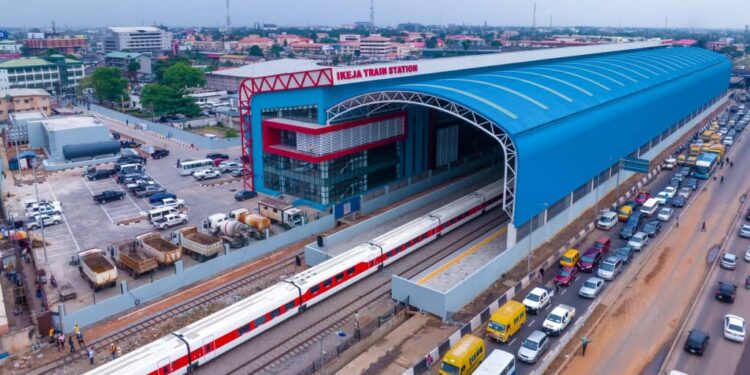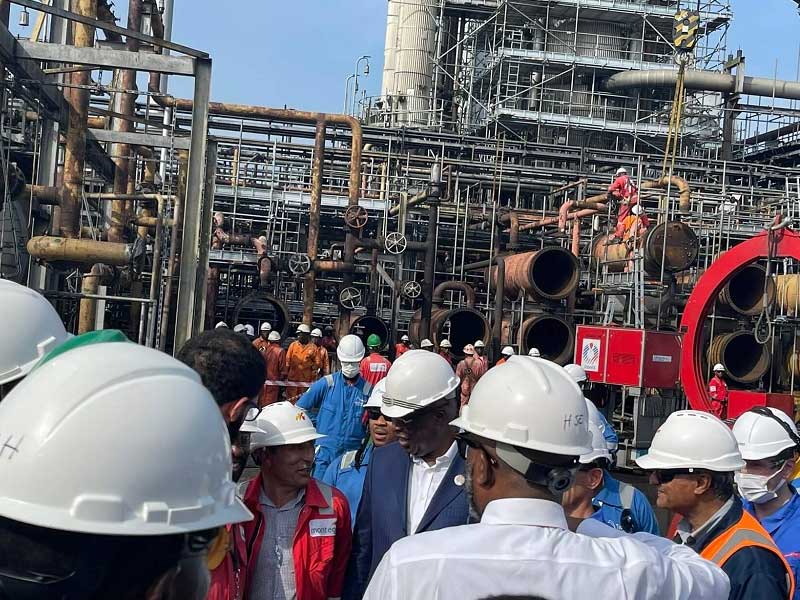
The Lagos State Government has revealed plans to concession the operations of the Red and Blue Line rail systems to the private sector to ensure their sustainability and repay loans taken for the rail projects. The disclosure came from the Lagos State Commissioner for Transportation, Oluwaseun Osiyemi, during a recent TVC News interview, where he discussed measures being put in place to sustain the rail systems in the state. Osiyemi explained that concessioning would involve transferring the operations of the rail systems to private sector players for a specified period, a strategy designed to guarantee continuity and effective management of the rail projects.
Related Stories Lagos govt announces 15-month traffic diversion at Mile 2 for transport interchange project, starting Nov. 11 Lagos govt announces traffic diversion for installation of truck barriers at Ojuelegba Bridge “The ultimate game is for all our rail systems we’ve done—that is, the Red Line and Blue Line—there is going to be some concessionairing with the private sector for a period of time to ensure sustainability and continuity, ” he stated. He added, “ The concessioning would help pay back the loans taken for the rail projects.

” The commissioner highlighted that the concessioning strategy aims to ensure efficient operations and financial sustainability, aligning with the state’s vision for a world-class transportation network. Osiyemi further emphasized the significant financial and technical demands involved in operating rail systems, describing them as capital-intensive projects that require substantial resources and specialized expertise. To address these challenges and build local capacity, he explained that the Lagos State Government has engaged foreign partners to temporarily manage the operations of the trains.
These partners are expected to not only ensure efficient operations during their tenure but also transfer essential skills to Nigerian personnel. The plan includes a structured training program lasting one to two years, after which management of the rail systems will be fully handed over to local operators. “What we have done is we have consulted foreign partners who, of course, would run these trains for a particular period of time and train our people—that is, transfer of skills.
They will train our people for one to two years, then hand over for our own management,” Osiyemi stated. The Lagos State Government, under its Lagos Strategic Transport Master Plan, has outlined an ambitious vision to develop multiple rail systems across the state. Currently, only the first phases of the Red Line and Blue Line rail systems have been completed, with passenger operations already commenced.
The Blue Line is a 27km electric rail line designed for sustainable operations. Its first phase, covering 13km from Lagos Marina to Mile 2, was completed in 2023 and commenced commercial operations in September, transporting over 2 million passengers to date. The Red Line, spanning 37km from Agbado in Ogun State to Oyingbo in Lagos, operates on diesel.
Its first phase, a 27km stretch, includes eight strategically located stations: Agbado, Iju, Agege, Ikeja, Oshodi, Mushin, Yaba, and Oyingbo. The construction of the second phases of both the Red Line and Blue Line rail systems is being handled by the China Civil Engineering Construction Corporation (CCECC), which also oversees the operation of the trains. Beyond the Red and Blue Lines, the state has plans for additional rail systems, including the 68km Green Line (Lekki Free Trade Zone to Marina), the 85.
7km Purple Line (Redemption Camp to Ojo), the 48km Orange Line (Ikeja CBD to Agbowa), and the Yellow Line, to further enhance the state’s transportation network..














